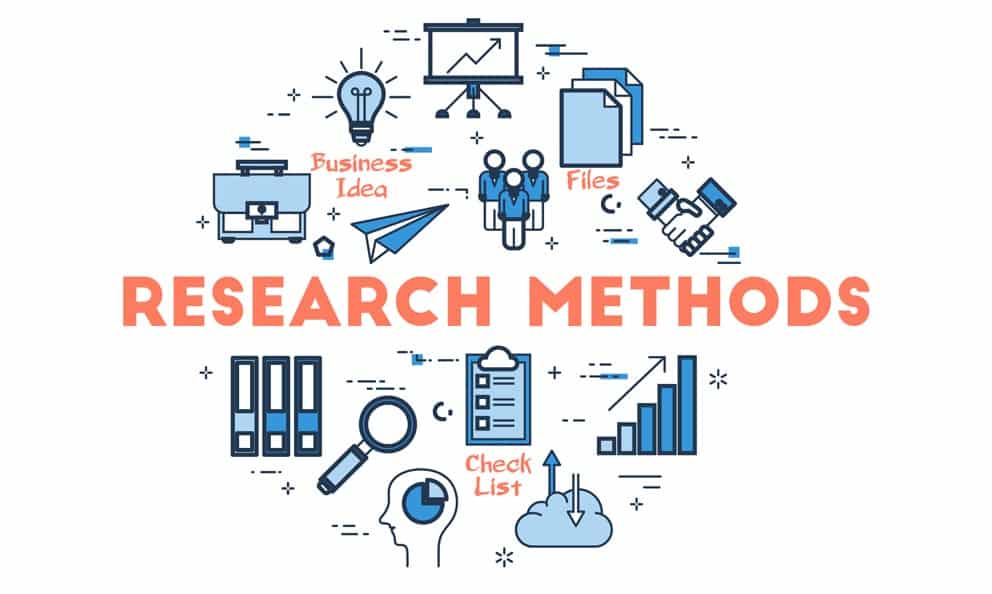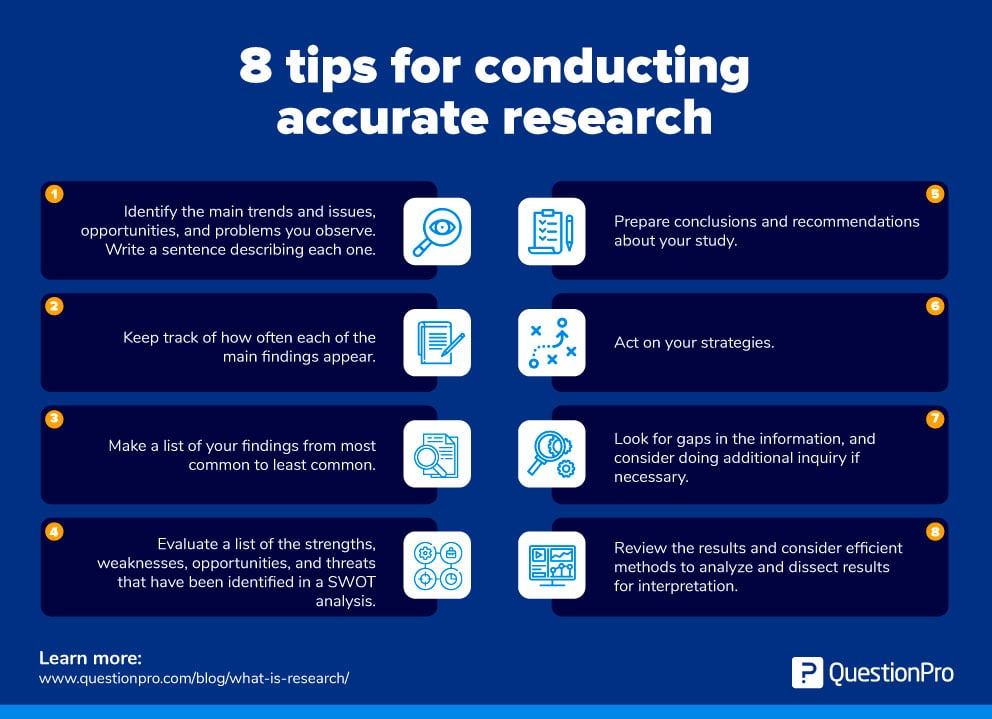what is the name of the field that attempts to define, explain, and predict criminal behavior?
What is Research?
Definition: Inquiry is defined as careful consideration of report regarding a particular concern or problem using scientific methods. According to the American sociologist Earl Robert Babbie, "research is a systematic inquiry to describe, explain, predict, and control the observed phenomenon. It involves inductive and deductive methods."
Inductive enquiry methods analyze an observed consequence, while deductive methods verify the observed effect. Inductive approaches are associated with qualitative enquiry , and deductive methods are more commonly associated with quantitative analysis.
Inquiry is conducted with a purpose to:
- Identify potential and new customers
- Empathise existing customers
- Set businesslike goals
- Develop productive market strategies
- Address business organisation challenges
- Put together a business expansion plan
- Identify new business concern opportunities
What are the characteristics of inquiry?
- Proficient research follows a systematic approach to capture accurate data. Researchers need to practice ethics and a code of bear while making observations or drawing conclusions.
- The assay is based on logical reasoning and involves both inductive and deductive methods.
- Existent-time data and knowledge is derived from actual observations in natural settings.
- There is an in-depth analysis of all data collected and so that there are no anomalies associated with it.
- It creates a path for generating new questions. Existing data helps create more research opportunities.
- Information technology is analytical and uses all the available data and so that there is no ambiguity in inference.
- Accurateness is one of the almost critical aspects of research. The data must be authentic and correct. For case, laboratories provide a controlled environment to collect information. Accurateness is measured in the instruments used, the calibrations of instruments or tools, and the experiment'due south final effect.
What is the purpose of research?
There are three principal purposes:
- Exploratory: As the name suggests, researchers bear exploratory studies to explore a group of questions. The answers and analytics may not offer a determination to the perceived trouble. Information technology is undertaken to handle new problem areas that haven't been explored before. This exploratory process lays the foundation for more conclusive data collection and analysis.
- Descriptive: It focuses on expanding cognition on current bug through a process of data drove. Descriptive inquiry draw the behavior of a sample population. Only one variable is required to behave the study. The 3 primary purposes of descriptive studies are describing, explaining, and validating the findings. For example, a written report conducted to know if acme-level management leaders in the 21st century possess the moral right to receive a considerable sum of money from the company profit.
- Explanatory: Causal or explanatory research is conducted to understand the impact of specific changes in existing standard procedures. Running experiments is the almost popular grade. For example, a study that is conducted to sympathise the effect of rebranding on customer loyalty.
Here is a comparative analysis for ameliorate understanding:
| Exploratory Research | Descriptive Research | Explanatory Enquiry | |
| Approach used | Unstructured | Structured | Highly structured |
| Conducted through | Asking questions | Asking questions | Past using hypotheses. |
| Time | Early on stages of determination making | Later stages of decision making | After stages of determination making |
Enquiry begins past asking the right questions and choosing an appropriate method to investigate the problem. After collecting answers to your questions, yous can analyze the findings or observations to draw reasonable conclusions.
When information technology comes to customers and market studies, the more thorough your questions, the better the analysis. You get essential insights into make perception and product needs by thoroughly collecting client data through surveys and questionnaires. You can apply this information to make smart decisions nigh your marketing strategies to position your concern effectively.
To be able to make sense of your research and get insights faster, it helps to apply a research repository as a single source of truth in your organization and to manage your inquiry data in one centralized repository.
Types of research methods and example

Research methods are broadly classified equally Qualitative and Quantitative .
Both methods have distinctive properties and data drove methods.
Qualitative methods
Qualitative research is a method that collects data using conversational methods, usually open up-ended questions. The responses collected are substantially not-numerical. This method helps a researcher understand what participants think and why they think in a item mode.
Types of qualitative methods include:
- I-to-ane Interview
- Focus Groups
- Ethnographic studies
- Text Analysis
- Case Study
Quantitative methods
Quantitative methods bargain with numbers and measurable forms. It uses a systematic style of investigating events or data. Information technology answers questions to justify relationships with measurable variables to either explain, predict, or control a phenomenon.
Types of quantitative methods include:
- Survey research
- Descriptive enquiry
- Correlational research
Think, enquiry is simply valuable and useful when it is valid, accurate, and reliable. Incorrect results can lead to customer churn and a decrease in sales.
It is essential to ensure that your data is:
- Valid – founded, logical, rigorous, and impartial.
- Accurate – costless of errors and including required details.
- Reliable – other people who investigate in the aforementioned way can produce similar results.
- Timely – electric current and collected within an appropriate time frame.
- Complete – includes all the data yous need to back up your concern decisions.
Assemble research insights
8 tips for conducting authentic inquiry

- Identify the main trends and issues, opportunities, and issues yous observe. Write a sentence describing each one.
- Keep track of the frequency with which each of the main findings appears.
- Brand a list of your findings from the most common to the to the lowest degree common.
- Evaluate a list of the strengths, weaknesses, opportunities, and threats that have been identified in a SWOT analysis.
- Prepare conclusions and recommendations virtually your study.
- Act on your strategies
- Wait for gaps in the information, and consider doing additional inquiry if necessary
- Plan to review the results and consider efficient methods to analyze and dissect results for interpretation.
Review your goals before making any conclusions about your research. Go along in mind how the process y'all have completed and the data you have gathered help answer your questions. Ask yourself if what your analysis revealed facilitates the identification of your conclusions and recommendations.
Source: https://www.questionpro.com/blog/what-is-research/
0 Response to "what is the name of the field that attempts to define, explain, and predict criminal behavior?"
Post a Comment